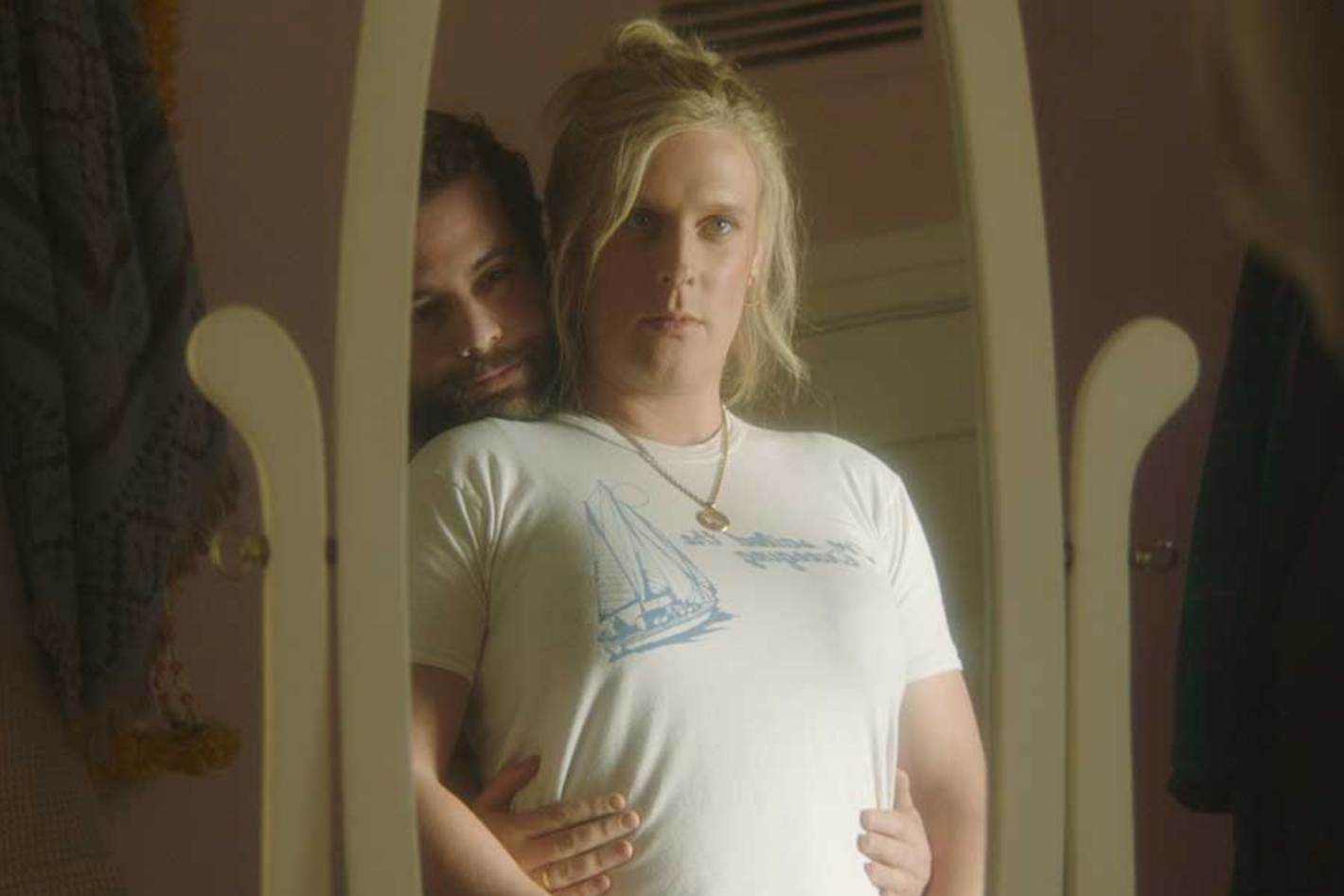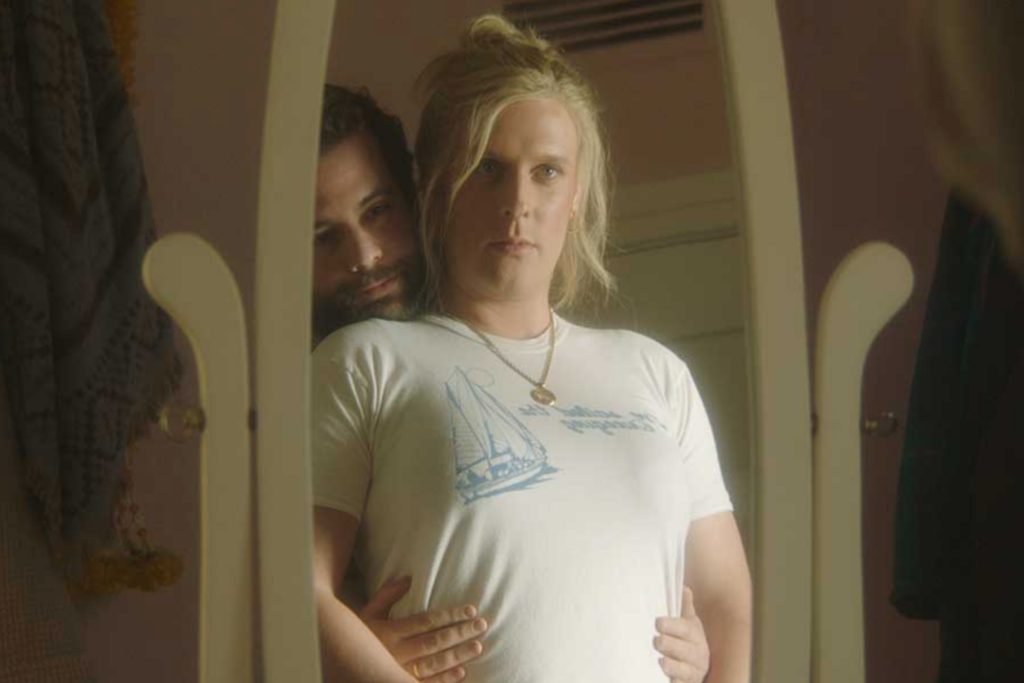
Comedian John Early’s directorial debut Maddie’s Secret is not a straightforward cautionary tale about bulimia. While it doesn’t necessarily trivialize the eating disorder or its harmfulness, Early is less concerned with bulimia than in its historic depictions onscreen — chiefly in hokey, made-for-TV movies from the ’90s, whose campiness, clunky dialogue, and melodrama he parodies. Maddie, played by Early without winking, has a disordered relationship with food that’s all the more tortured because of her job. She works as an on-camera host and recipe developer for an online food media brand called “Gourmaybe,” a Bon Appétit-clone. In this world of online content, food is aggressively styled to look as tempting as possible, to appeal to viewers who gratify themselves by watching a person they aspire to be eat delicious food they don’t have access to. Early heightens the melodrama of this situation for comedy, but also pushes it so far it swings back around to being emotionally affecting again.
Much of this is achieved through performance and camerawork. Early communicates the pathology of Maddie’s relationship with food by leering at it and consuming it lustfully. It starts subtly. The recipes she makes, which are styled at the beginning of the movie to look desirable, leave embarrassing smears of sauce or frosting on her face because she eats them a smidge too greedily. That might be relatable to anyone who has ever eaten too fast after skipping a meal. But soon the film reaches its first binge-eating scene, in which Maddie violently shoves fistfuls of food into her mouth in a dark kitchen. She forces it down by chugging milk so fast it streams down her chin. The scene is shot in extreme close-up, in borderline pornographic fashion, with sound design so vivid it would send a person with misophonia into an institution.
This sets the tone for how food is depicted for the rest of the movie. Instead of the bright colors and satisfying crunch sounds that accompany influencers’ recipe videos on Instagram, food is shot as if through Maddie’s eyes, as objects of shameful compulsion. The lighting of every dish is just slightly too dim, so it looks less appetizing than menacing. At one point, Maddie makes a rotel dip as part of a recipe she’s developing at work and her boss, played by Connor O’Malley, perverts it by sticking two fingers in it. Later, in a bid to up her social media following, Maddie reluctantly films a video of herself eating a lumpy viral burrito that is cooked and sold at a “car wash.” Every subsequent scene in which people eat features loud, grating sounds of chewing that only ratchet up the tension. There are still jokes, but the second half often feels like one of those modern horror movies where the real villain is a metaphysical concept, like trauma — or in this case, food.
There’s a turning point in the film where Maddie checks into an inpatient facility to get treatment for her eating disorder; one afternoon, the dining hall erupts into a chorus of happy birthday. A mortified look falls over the face of the birthday girl, a fellow patient of Maddie’s, as the nurses place a celebratory cupcake in front of her and tell her she has to eat it; unlike the rest of the food in this part of the movie, the cupcake is shot normally. The girl reflexively bursts into tears. It’s an over-the-top reaction to an innocent gesture, plucked from the TV movies Early wants to evoke. The cupcake, nevertheless, looks repulsive.
More From the Toronto International Film Festival
The comedian’s directorial debut mines melodrama for comedy, but pushes it so far, it swings back around to being emotionally affecting again.

































































